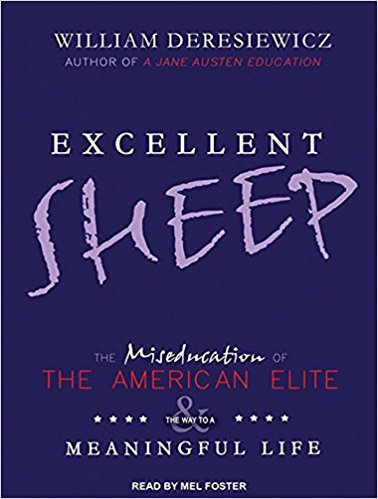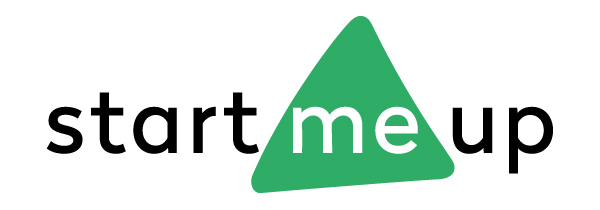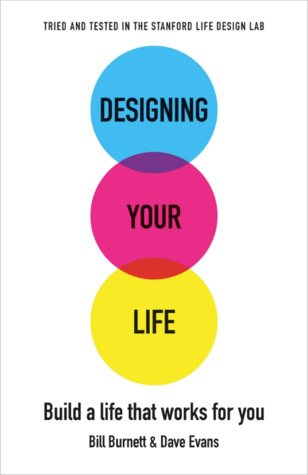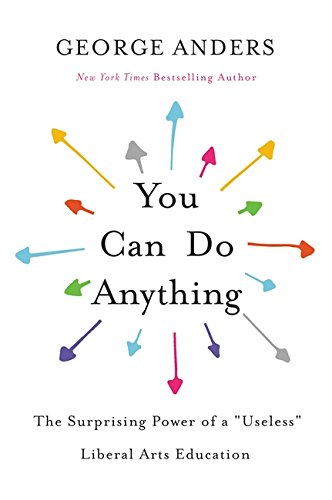As a university student, the chances are you spend most of your days with your nose in a book.
University is about gaining a critical awareness of your subject. There’s scarcely enough time to develop a critical awareness of the world of careers too.
Here are a few books which might help you navigate your way:
Why you’re a bit of a sheep
 As a former philosophy student, the best way to start any kind of critical enquiry is with a existential crisis, which is why I recommend Excellent Sheep: The Miseducation of the American Elite and the Way to a Meaningful Life William Deresiewicz.
As a former philosophy student, the best way to start any kind of critical enquiry is with a existential crisis, which is why I recommend Excellent Sheep: The Miseducation of the American Elite and the Way to a Meaningful Life William Deresiewicz.
Former professor of English at Yale, describes elite college students as whiz careerists caught up in a system that “rarely asked them to think about something bigger than the next assignment.”
As someone who went to a top university, I can totally relate to parts of this book, especially the first section.
“The system manufactures students who are smart and talented and driven, yes, but also anxious, timid, and lost, with little intellectual curiosity and a stunted sense of purpose: trapped in a bubble of privilege, heading meekly in the same direction, great at what they’re doing but with no idea why they’re doing it,” he writes.
“The fact is that elite schools have strong incentives not to produce too many seekers and thinkers, too many poets, teachers, ministers, public interest lawyers, nonprofit workers, or even professors – too much selfishness, creativity, intellectuality, or idealism.”
How to use design thinking to make better career decisions
Okay, so now we’ve looked at some of the problems, let another two academics from another top US university, help with the solution: In Designing Your Life: Build a Life that Works for You, Bill Burnett and Dave Evans, two academics from Stanford offer some practical tips to start planning the rest of your life.
“..there isn’t just one solution to your life, and that’s a good thing. There are many designs for your life, all filled with hope for the kind of creative and unfolding reality that makes life worth living into. Your life is not a thing, it’s an experience; the fun comes from designing and enjoying the experience.”
They argue for the following five principle
- First off, develop your curiosity. A key part of the entrepreneur’s mindset is the ability to see and exploit opportunities. And whether or not you choose entrepreneurship, the more curious you are about an issue or cause, the more likely you will be to spend time thinking and researching that issue. And the better informed you will be. Be curious about the world. And be curious about how you can change it.
- Cultivate a bias to action. Do stuff. Don’t be like I was when I was young, don’t just talk about all these ideas without doing any of them. Try stuff. Out. Now. Volunteer. Intern. Write to someone. Offer your services. Ask them a question. Find a mentor. Most people want to help.
- Reframe. Yes this sounds like a bit of a whacky self help term but stop looking for your one true passion or purpose, or assuming there is one path out there for you.
- Awareness: know that it’s a process. As above, know that an important idea may come when you least expect it. Try to practice creative ideation as a habit but also prepare for the fact that you might arrive at an insight while on a walk, or at the pub.
- Radical collaboration. This means working with others. It can be tempting to read the biographies of successful people and be super impressed at hearing accounts of how they pulled themselves up by their bootstraps and did it all by themselves. Do you know how many celebrities don’t even write their own autobiographies? Work with others.
Not studying STEM? Don’t fret!
Not studying a subject that leads to an obvious career? Fret not. This could be an advantage, argues George Anders in You Can Do Anything: The Surprising Power of a “Useless” Liberal Arts Education.
The key insight: curiosity, creativity, and empathy aren’t unruly traits that must be reined in. You can be an English major, and thrive in sales. You can segue from anthropology into the booming new field of user research; from classics into management consulting, and from philosophy into high-stakes investing. At any stage of your career, you can bring a humanist’s grace to our rapidly evolving high-tech future. And if you know how to approach the job market, your opportunities will be vast.



